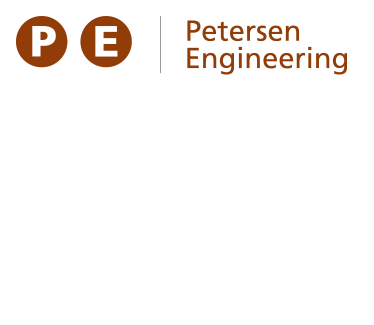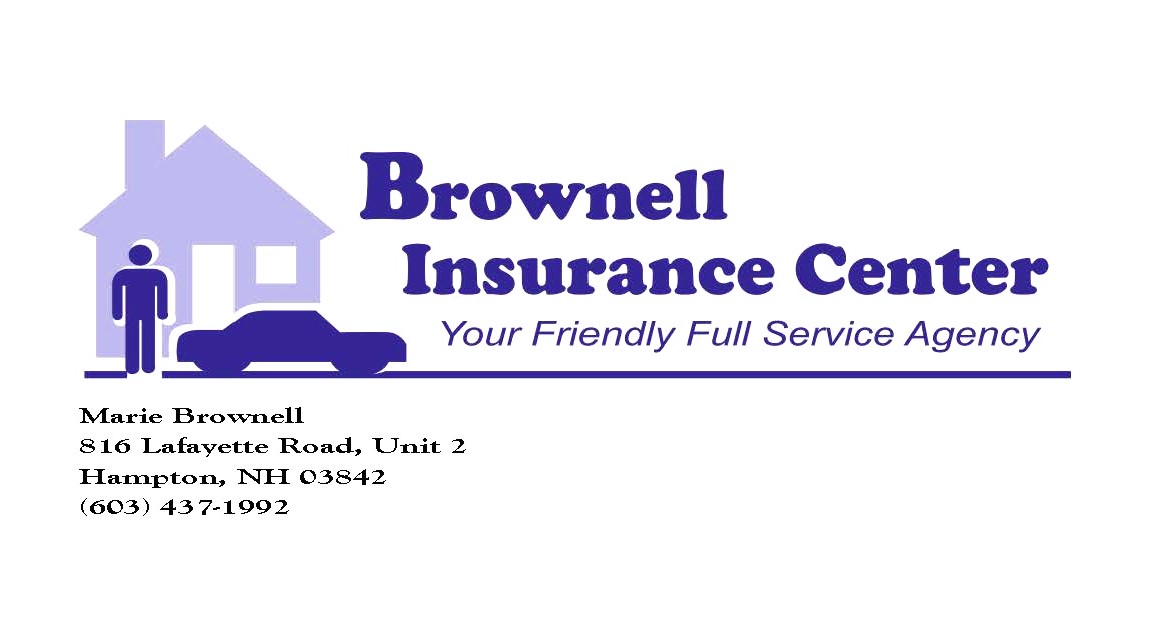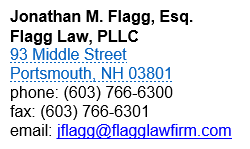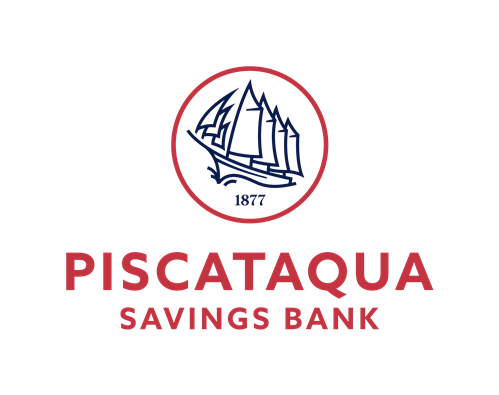Rotary Log: Meeting of July 24, 2014
It was an action- packed meeting last week! Rotary Reporter Mark Lorusso has the details, which follow. Hope to see you at noon today for our end-July sendoff.
President Tricia presided on this beautiful summer day. Diane Foley led us in song with “America the Beautiful.” Mort Schmidt marshalled us through the four way test and Reverend Allen gave voice to yet another thought provoking invocation—both Rotary treasures.
Rotary birthdays included Ted Alex, Keith Eveland (33 years), Micki Allen (34 years), Dave Holden (30 years) and Butch Ricci (28 years). We celebrated with a full rendition of Happy Birthday.
President Tricia informed us Jeff Marple is not feeling well and hasn’t been able to attend meetings of late. Calls and cards would be most appreciated. George on seven day notice.
General announcements were given by Andy Chase and Leonard Seagren. Andy took full advantage of the stool at the podium to reach NBA center height and gave us the golf report. Andy began his presentation with a quick quip. In Andy’s words, “obviously we have the opposite problem.” Apparently he was referring to something about stature or the lack thereof. No names were or will be mentioned to protect the innocent, or the vertically challenged as the case may be. The tournament was held on June 20. Eighty-eight players participated in a miserable 75ºF and sunny day with a slight breeze brought it down to a woeful 72ºF. Ben Wheeler, Bob Harold, Doug MacDonald and Dale Evanson won the Rotary Cup. There was some mention about 5 strokes, but we will leave that issue to the golf committee to make a recommendation to the full board. Marie Brownell graciously picked up the cost to insure the tournament to the tune of about $400—thank you. Bill Hurley and Infinite Imaging prepared all the signage and other supplies at a greatly reduced cost—thank you as well. Through the hard work of volunteers too numerous to mention, the tournament raised $26,000 for the basic needs endowment that now stands over $110,000.
Leonard Seagren informed us about being shocked by the arrival of a kayaker at his dock that afternoon. It turned out to be a dear old friend and she was in the Kayak. His immediate reaction was to ask, “can I help you?” “Yes, I need a place to stay. I’m going to Guatemala.” Her name is Deb Walters and she is taking this oceanic trip by herself at her expense to raise money for people living at the garbage dump in Guatemala City where some 10,000 or so souls survive. The money raised will be used to fund the construction of a school. She informed us our district brought this to the world’s and Deb’s attention and she decided to do something about it. Donations can be made to her website and you can follow her progress on the website. Leonard says she is not alone in her quest. Good luck and God Speed, or kayak speed.
Justin informed us about the Thunder Chicken race on Saturday, August 23. Volunteers and runners needed. Please sign up. Please check our website for more details.
Today we welcomed a distinguished guest from the U.S. corporate world. Stella Scamman from her new perch on high introduced our guest, former Hewlett Packard CEO Carly Fiorina. Stella was delighted to see the entire club all at once for the first time—nothing like the marvels of modern technology to bring the world to you with nothing more than a simple pedestal.
As a rather inspiring speech, this will be a longer log than most as the speech is reproduced in its entirety with a modicum of editorial license. Stella introduced Carly as being a seasoned problem solver, articulate, poised, quite knowledgeable, effective leader, innovator and entrepreneur. Carly graciously accepted the laudatory comments, but challenged the “smoothness” of her ascent to the highest corridors of power—more on that later. The theme of her speech was human potential as an unlimited source of energy, innovation, knowledge, you name it, we’ve got it. As for the smoothness of her rise to prominence, she started her career in a nine member real estate office as a “Kelly Girl,” i.e., a secretarial temp employee as an entry level job. She later joined AT&T in an entry level position thereafter. Fifteen years later, she led AT&T’s spinout of Lucent Technologies and became head of North American Operations. In 1999, she was recruited by Hewlett Packard and became the first woman CEO of a fortune 50 company. In six years at HP, she more than doubled revenues to over $90 billion.
Carly informed us that the highest calling of leadership is to unlock the potential of others. Fortune magazine named her the most powerful woman in business.
Carly next recognized Rotary clubs as being the backbones of their communities, not to mention Addis Ababa. Individual Rotarians are the backbones of their communities. Lawyers, doctors, small business owners make main street America work. She talked about how her resume sounds so “smooth” when she is introduced to groups as a speaker. Well, it was anything but smooth. She graduated from college with a degree in Medieval History and Philosophy. Why? Because a teacher inspired her just as we all can look back to our pasts and identify a teacher or two that inspired us. She went to law school, (her dad was a law professor), but learned she hated it and quit. Her resume now reads degree in Medieval History and Philosophy and law school dropout.
To pay the rent, she went back to what got her through college; she went back to being a Kelly Girl—the then politically correct name for what is now referred to as Kelly personnel. Most of the Kelly Girls were women who worked as temporary office personnel. She proudly proclaimed she could type 86 words per minute and took the first job offered, a receptionist position at a real estate firm. At that time, she wasn’t thinking about the future, just thinking about paying the rent. After about six months, two founders of the firm came to her and said they were watching her and believed that she could do more than type and file. They asked her if she wanted to know what they do. That act of leadership saw potential in her and caused her to see something different in herself.
Her husband also worked at AT&T and ultimately retired as an executive at AT&T, but started in a family-owned auto body shop. She has travelled all over the world and has learned many things in her travels. One lesson she learned is as true today as it has ever been--it is only in this country that a young woman can start out as a secretary and become the CEO of the largest technology company in the world. All of our stories, the American Story, is only possible here.
After her career at HP, she got involved in many different activities. She ran non-profits and remained politically active. The reason for her political involvement is because she believes ours was intended to be a citizen government--by, for, and of the people. She believes a great deal of our problems are caused by having too many professional politicians. It is immaterial whether they are Democrats or Republicans even though she knows many are well-meaning. Many have spent all their life representing their communities. However, too many have spent too much time running and winning, running and winning and talking about all the things that divide us when in truth, we agree on about 85% of the issues. To win their races, they focus most of their time on the 15% of issues that divides us and of which we vehemently disagree. She has also run for office and remained politically active because she is very concerned that her two granddaughters will not have the same opportunities that she had--the opportunity to dream as big as they choose and to make their own way in life.
She currently serves as chairman of two non-profits. One is called Good 360. The organization takes excess inventory from companies of all sizes and distributes that inventory to 37,000 charitable organizations around the US. Technology, clothing, books, diapers, personal care products and the like are distributed so as to help people in need rather than to end up in landfills unused..
She is also chairman of Opportunity International—the largest microfinance organization in the world. This organization helps desperate and destitute people around the world. 93% of the organization’s clients are women because poverty falls so heavily on them. To date, they have loaned out $6 billion, $150 at a time. She is active in these areas because she believes civil society matters. She is also active in these areas because she has learned over and over and over again that people are not poor because they lack intellect. People are not poor because they lack ambition. People are not poor because they don’t have dreams or lack desire. People are poor because they lack opportunity. People are poor because no one will take a chance on them. People are poor because they don’t have the tools, or the training or the chance to see something in themselves.
She has had life changing setbacks in her life. She battled cancer and shortly after winning that battle, she lost her youngest daughter. In all those profound experiences, in all those life’s triumphs and tragedies, she was able to come through it with the strength of love, family and faith and lifted up over and over again by the kindness and compassion of those friendships and relationships.
With all her different experiences in business and philanthropy, she has come to know a few bedrock principles. Same things we all know, but things we need to remind ourselves about and to remember who we are. One thing she knows is that human potential is the only truly limitless resource we have. Every person, every life has meaning. Every person has more potential than ever realized. Every organization has more potential than they usually tap. Every person has the potential to live a life of giving and purpose. People fail to reach their potential for all sorts of reasons such as lack of opportunity, not having someone take a chance on them like those two men took a chance on her. Sometimes it is because they lack someone to have faith in them. Sometimes it is because they lack the courage to take chances or take risks, or because they lack the training or education.
This nation is unique among all nations and unique in all of history because it was founded on the visionary idea that everyone has potential and everyone has the right to fulfill their potential. That is what the founders meant when they said everyone has the right to life, liberty and the pursuit of happiness. And our founders believed--and this country still believes--the way to fulfill that potential comes from God and cannot be taken away by our government. In this country, our founders said--and we have reconfirmed it over and over--that it does not matter who your are, or where you come from, or what you look like, or what your last name is--all that matters is that you have potential and you have the opportunity to dream as big as you dare and to accomplish as much as you chose and to define your life for yourself.
She knows that human potential is the source of all problem solving, of all innovation, of all advancement. In fact, there is no problem that cannot be solved when the ingenuity and creativity and potential of people are focused on worthy goals and common purpose. So it is really important, in her words, as we think about our nation, when we speak around the lunch table, people have this sense of disquiet. She does speeches all over the country and there is this sense of disquiet. People feel as those we are at a bad place. Some people use the word “crisis.” We know somehow that something isn’t right and so it is important to ask ourselves what unlocks the human potential of this nation and what crushes it. So what unlocks it? Entrepreneurship unlocks that potential. Entrepreneurship is a big fancy word, but we all know what it means. It means having a dream, taking a big risk, imagining something new and building it so you can build a better life for yourself, for your family and for those who chose to associate with you.
She mentioned her work with Opportunity International. The organization didn’t set out to loan money to women, but 93% of their loans have been made to woman because they are better credit risks--in her words, “sorry guys!” Women have a longer vision. Their focus is not on just themselves, but on their families and those around them in their communities. She has seen women in the most unforgiving circumstances that are given a chance with a $150 loan and become entrepreneurs. They have the courage, vision and support to make a better life for themselves, their family and, of course, that is what has happened in this country over and over and over again. Small business entrepreneurship is the backbone of this nation and that has always been the case. Side note, by 1800, this country had more companies formed than all of Europe combined at that point in history. Small businesses, new businesses, entrepreneurs, and Rotarians have made this the greatest economic engine on earth and in all history. You know well that the vast majority of Americans get their start the way she did, the way her husband did, the way her employees did—in a small business.
She’s run big businesses, but it is the small business, the doctor’s office, the real estate firm, the coffee shop where all the action is. It’s the small businesses that employ over half the people and create most of the new jobs in this country and it has always been the case. So entrepreneurship and small business ownership helps unlock potential. Education helps unlock potential. It is a tragedy that we are not educating our children. In her humble opinion the answer to our education crises is not to try and emulate China. The Chinese have great test scores, but lack innovation. They are not trained. What else unlocks potential? When we were all educated, what inspired us? A teacher. That is why she has a degree in Medieval History and Philosophy—a teacher inspired her. So if we want to educate our children then we better focus on having the best teachers we can. And give parents the choices so that they can make sure their children have the best teachers possible. What’s another thing that unlocks potential? A job. She tells young people all the time--don’t worry about getting the perfect job, just get a job. Because whatever job you have (she answered the phones and did the books at a hairdressing shop, she answered the phones and typed at a nine person real estate office) and she learned something from every job she had. And every job she had taught her a sense of responsibility and self-worth. Every job she had caused her to learn something about herself as well as those around her. So, in her view, it is critically important that there is a job requirement in welfare--not because we want to save money, but because we know jobs build skills and self-respect and dignity. And it is also why she finds it so cynical, when so many people are out of work in this country that some believe the answer is to market food stamps. There is no question that there are those in need of relief and support when they are down and out and that there could come a time when anyone of us could need a helping hand. But everyone needs a job because it unlocks their potential. And since we are in the Live Free or Die state, it is also worth remembering that free markets unlock potential. She is not talking about crony capitalism. She is talking about free markets where people have equal stature in the market place and can choose to compete against who they wish and collaborate with whom they wish. The rule of law unlocks potential because it protects the weakest and most vulnerable among us and holds accountable the powerful among us. And liberty unlocks potential because when you have the freedom to find your own way to dream your own dreams, to make your own mistakes, to imagine your own future, you use, you fulfill, you find more of your gifts and your potential. And perhaps the most important ingredient of all to unlock human potential is leadership. In her view leadership is not the same as management. Management is really important and we all know how important good management is every single day. But management is the production of acceptable results within known constraints--real important, but not leadership. Leadership is about the changing of the order of things. Leadership is also not about title, it’s not about position, it’s not about power. When she worked as a young secretary, she viewed the people in the corner offices as being the leaders. But the truth is, as we all know, there are many who have occupied corner offices that have never led a day in their lives. And then there are others with nothing, with no title, no position, no power who lead every day because they make a positive difference and they change the order of things The highest calling of leadership is to unlock potential in others. That is why those two gentlemen that came to her desk so many years ago were leaders because they took the time to find a way to unlock the potential in others.
What crushes human potential? Well we know the answer to that clearly. Bureaucracy crushes potential. And she doesn’t care if the big bureaucracy is in a big business or big government or in some agency somewhere, bureaucracies all have certain characteristics. Bureaucracies are rules based, process driven, hierarchical organizations. And in a bureaucracy, no matter how big employees are, they get the message--don’t take risks. Don’t get outside the lines. Don’t violate the process. Keep your head down and follow the rules. And if you have a tough question, don’t decide it, send it up the chain. And the other thing that happens in bureaucracies, all bureaucracies, if they are not challenged, if they are not held accountable, if they are not forced to be transparent they become inwardly focused and forget who they are there to serve. They get all hung up on their internal metrics and they forget who they are there to serve. And it you doubt that look what is going on with the Veteran’s Administration. The VA is a balanced bureaucracy, well-funded. It has had a 47% increase in its budget over last eight years. This isn’t a question of funding. This is a question of leadership. This is a question of culture. This is a bureaucracy that is folding in on itself and has forgotten that they are there to serve our nation’s heroes and instead. They are being corrupted and corrupting the processes so that they don’t have their bonuses taken away. And if bureaucracies all over the country and all over the world are left to their own devices perform in the same way. And that is why any business that wants to be more effective and any organization that wants to be more effective decentralizes decision making as effectively as possible. Why? Because decentralized decision making works better.
When you put decision makers closest to those they are intended to serve, what happens? They serve them better because they are closer to the problem. Because they are held accountable by whomever they are close to and are served such as customers and citizens. That is why our founders believed in limited government--because they knew the consequences of the use of power and they knew especially the consequences of centralized power.
She worries we are crushing the potential of this nation. And her worries are based on the facts. Today, more small businesses are failing and fewer are starting than in any time in the last 40 years. The Brookings Institute is reporting that for the first time in US history, we are destroying more businesses than we are creating. Big business is doing great. And if you are in equity, you are doing pretty good right now too. Crony capitalism is alive and well. And if you doubt that, she was chatting at lunch about General Motors and the bailout. Whatever you think about the bailout--whether you think it was a good idea or whether you think it was a bad idea, here are the facts. Everyone stood up and applauded when millions of jobs were saved. What no one spoke about was that there were more jobs in communities that were suppliers. More of those jobs were lost than all of the union jobs combined and no one in Washington said a word because big government and big business do pretty well together. Big business likes complexity, likes lots of regulation. “They got lawyers, they got accountants. Hey, I was a CEO of a major corporation and had lots of lawyers and accountants and lobbyists and make the rates of the tax code do what was good for my business.” But the little guy—not so much. And so now we have more small businesses failing and fewer starting. What did Dodd-Frank do? The facts are these. Ten banks too big to fail became five banks too big to fail, record bonuses being paid all around. What is happening to our community banking system? With the downfall of main street, the community banking system is under stress and they had nothing to do with the housing crisis. We are crushing the entrepreneurial potential of this nation--too few big markets and too much crony capitalism. In fact, we now have the tale of two economies. If you are big business or an equity holder, you’re doing pretty good. If you are main street, you are looking at a community that may not be coming back. Poverty levels are higher than they have been in decades. Young people face record levels of unemployment. African Americans and Hispanics face record levels of unemployment. Women are bearing the brunt of so many of our policies. Women are losing access to opportunity. A recent report stated 55.3 million women are no longer in the work force. For all Americans, participation in the workforce is at an all-time low. For women it is at a mere 58%, a record low. So we have an entrepreneurial spirit that needs to be rekindled. We need human potential that has to be tapped. It is time for us to call it like it is. We have a lot of crony capitalism and not enough free markets. We have too much centralized decision making going on in Washington by people who are not close to the problem, don’t understand the problem and in many cases, no longer care about the people they are trying to serve. It is also time for us to recognize that every rule we have in this nation is self-inflicted. The poverty rates are self-inflicted. The small business destruction is self-inflicted. The lack of opportunity for too many people is self-inflicted. It is time for all of us to realize we have all the human potential we need to solve our problems. We need to, together, ensure that every American has the opportunity to build a life of dignity and purpose. She believes we need to do these things are different politics and different viewers. And that is why she thinks it is so important that all of us as citizens stand up and be involved and lead because the highest calling of leadership is to change the order of things and to unlock the human potential of others. So she believes it is time for all of us, as Americans of this great nation, as people who have benefited enormously from having the opportunity to be here and dream here and build here to take action. It is time for us to stand up to say without apology or equivocation that this is the greatest nation the world has ever known.
“Here anyone can fulfill their potential regardless of who they are or where they come from. Here, everyone has a chance to once again to make their own choices to make their own way, to dream their own dreams to achieve their own aspirations. I think it is time to curry and identify politics and end lowered expectations. I think it is time that together we change the order of things”.
The first question summed up her speech in one word—AMEN. Reverend Allen took umbrage and claimed, “you’re stealing my lines.”
Andy Chase asked about bureaucracy and money—96% say money in politics is the problem and 92% say it can’t be fixed. How do we fix this?
Answer—no silver bullets. One of the things she is doing is focusing on the grass roots. One reason she is here in NH is to promote the Unlocking Potential Project. The Project focuses on grass roots, boots on the ground, person-to-person conversation. We spend millions of dollars on wars and political campaigning, but we don’t have people talking to people they know about the issues. This is one small effort and it won’t change things overnight, but she think it matters. When she was coming up in the world, things were very different. Business stayed in its lane; politics stayed in its lane with the occasional overlap. No matter how much money flies around, each of us is most influenced by the people we know. We all have a voice, we all have a vote and we have to power to influence others with our voice.
Next question—what about the middle point where those voices need to be heard where the decisions are made. How do we get to that point?
Answer—million dollar question. If you doubt the ability of everyday Americans working in grass roots movements bringing change, think about two political movements in the last five years--Obama’s campaign and the Tea Party. They are polar political opposites, but they had one thing in common--grass roots person-to-person communication. That is what it was. Personal relationships were leveraged throughout the country. She then spoke about Maya Angelou who said, “our greatest fear is not that we are powerless, our greatest fear is that we are powerful beyond our understanding.” We have the power and potential to solve any problem and we first need to understand that power so we can use it to solve problems.
Last question--Citizen’s United—are corporations people?
Answer: corporations are made up of people and she views it as a matter of fairness. If unions can have a voice, corporations should have a voice as well. Same standards have to apply to everyone.
Raffle--$50 and $250 bonus. Winner—626022—no match.
Download the website sponsorship guide













